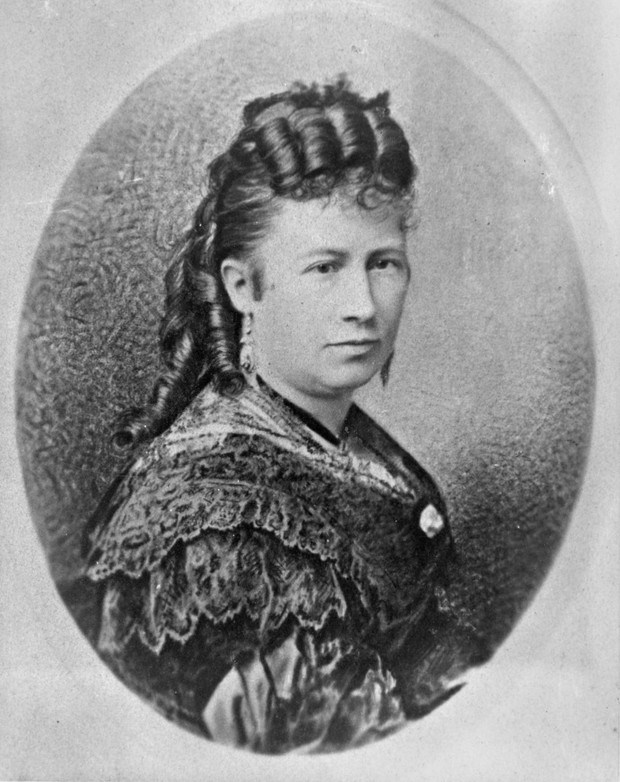Last updated: July 28, 2020
Article
Julia Dent Grant and the Fight for Women's Property Rights in Missouri

Library of Congress
The story begins with her husband’s “Hardscrabble” log cabin. Seeking independence and a place to call his own as he worked as a St. Louis farmer, Ulysses S. Grant began constructing a log cabin on his father-in-law’s White Haven property in 1855. After a year and a half of hard labor (with assistance from neighbors and enslaved African Americans), the log cabin was completed in October 1856. Julia’s distaste for the home, combined with her mother’s death in January 1857, prompted the Grants to move back to White Haven only three months later.
After giving up farming two years later, Grant decided to seek employment in downtown St. Louis. He found a suitable house at the intersection of Ninth and Barton streets that was owned by Joseph W. White, a telegraph operator in the city. Grant and White came up with an arrangement to trade houses; Grant would move to the Ninth and Barton street home while White would take ownership of Hardscrabble and the adjacent eighty acres surrounding the property. Because the value of Hardscrabble and the surrounding acreage exceeded the value of the city home, White established a deed of trust to secure a promissory note of $3,000 to be paid back over the next five years. White initially made his payments on time. However, during the Civil War he stopped making payments and eventually defaulted on the promissory note. Tied up in Mississippi with the Vicksburg campaign in early 1863, General Grant wrote to Julia asking that she go to St. Louis and purchase Hardscrabble at an upcoming courthouse sale.

NPS
White still refused to surrender the property, however, and filed his own appeal to the Missouri Supreme Court. His primary claim was that because Julia Grant was a woman, she had no authority to sign the lease that had been written in 1863. On March 30, 1868, the Missouri Supreme Court unanimously decided in favor of the Grant family. Rejecting Joseph White’s arguments, the court found that women in Missouri—regardless of whether they were married or single—had the legal right to sign contracts either in their own name or as agents of their husband, and that they held the right to own property. In the end, Julia Dent Grant’s fight for ownership of Hardscrabble proved to be a victory for women’s rights in Missouri.
